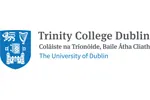About Latin, BA (Hons) - at Trinity College Dublin
Latin cannot be studied as a single subject. It must be combined with one other subject within the two-subject moderatorship (TSM) programme. This is a joint honors programme; both subjects are studied for three years and one subject only is studied in the fourth year. When combined with another subject within the two-subject moderatorship you can study Latin ab initio (from beginner level) as an intensive language component is available in first year.
Latin may only be combined with Greek in the single honor classics degree.
Is this the right course for me?As a student of Latin, you will not be merely a student of language, but also of art and literature, of history, politics, philosophy and religion. The core curriculum provides a solid grounding in many of the major disciplines of the humanities.
Course contentAll classical texts are read in their original language. The texts studied cover a wide range of genres, including epic, drama, lyric poetry, philosophy and historiography. The main emphasis of both beginners' and non-beginners' courses is on classical literature and thought viewed within its cultural context. To complement this, some history, art history and archaeology is also studied. This encourages a comprehensive, interdisciplinary approach to classical culture.
The Junior Freshman yearIn the Junior Freshman (first) year all students follow a course in Greek and Roman history and a course in Greek and Roman art and architecture. The language component of the course will be different for students who have previously studied Latin than for students who are beginning the language from scratch.
Art and architecture of Greece and Rome - an introductory survey of the chief periods and styles in Greek and Roman architecture, sculpture, painting and pottery Introduction to Greek and Roman history - an introductory survey of the history of Greece and Rome, from the Greek Archaic age to the early Roman principate (c.850BC-AD68)
Latin for beginnersElementary Latin - an introduction to the Latin language, with an emphasis on comprehension and grammatical knowledge Mythology and religion - the chief Grecian myths, as illustrated in Greek and Roman art and literature, followed by a study of the chief features of Greek and Roman religion
Latin for non-beginnersLatin texts - this course covers the following authors: Catullus; Cicero, Pro Caelio; Virgil: selected books of the Aeneid Latin Language - The course offers revision and consolidation of basic grammar and syntax, leading on to more advanced work involving the reading and translation of a selection of texts in both prose and verse, unseen translation from Latin into English and translation from English into Latin in the form of a structured series of linguistic exercises.
The Senior Freshman and Junior Sophister yearsIn the second and third years students improve their fluency in reading and accuracy of translation through a translation class. Texts used for this class offer students advanced study of a wide range of core literary texts in both prose and verse and help them towards the independent reading and appreciation of Latin literature in its historical context. As well as the translation of selected texts by the chosen authors and detailed literary and historical analysis, the course includes the application of textual criticism and literary theory. All students continue with the study of Roman history, concentrating on the first three centuries of the Christian era, through a mixture of lectures and small-group seminars conducted in teams.
The Senior Sophister yearStudents who elect to study Latin in the final year take two special subjects and write a thesis of not more than 15,000 words on a subject of their choice that is of relevance to the Classical world. Final year courses in the recent past have included Alexandria and Rome, didactic poetry and Flavian literature.
Assessment structureContinuous assessment is combined with end-of-year examinations. Final year students must also complete a dissertation.
Career opportunitiesRecent graduates have worked in many fields including archaeology, art restoration, banking and accountancy, business, civil service, computers, journalism and broadcasting, law, librarianship, museum work, publishing, teaching and theatre.


